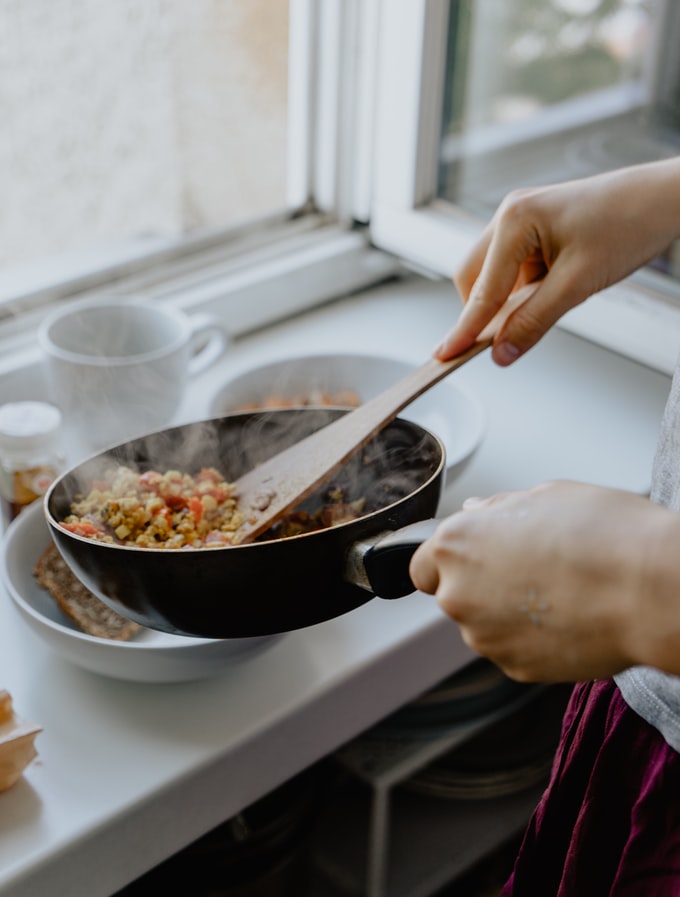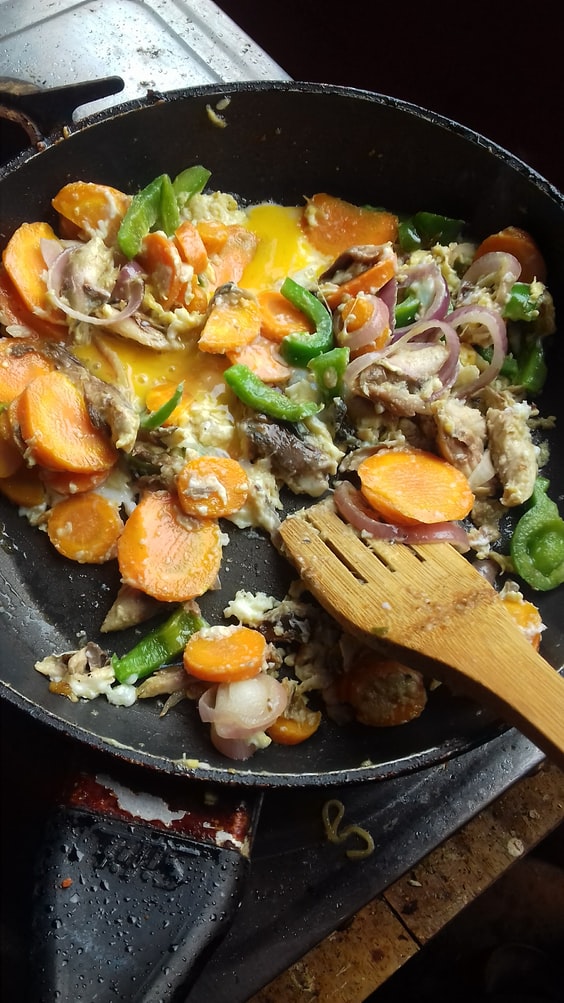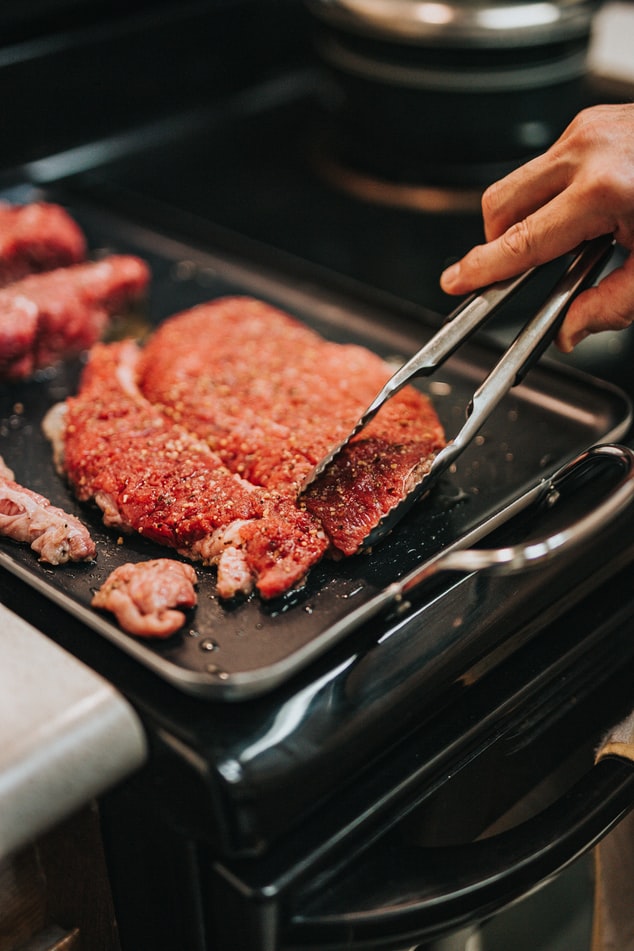Read on to learn how to save electricity and cook efficiently at home to cut your energy bills!
 Photos by: Unsplash
Photos by: Unsplash
Cook efficiently
Typically, you may not think about the impact of saving energy in the kitchen on your total energy bill. Usually, you're more concerned with making sure your home is well insulated or changing your energy business to save some money. However, it should be announced that the energy consumption in the kitchen can have a huge impact on your total energy consumption and thus on your energy costs.
This largely depends on the food you are cooking and how you cook it. However, this does not mean that you need to invest in a high quality, energy efficient oven to improve the energy efficiency of your kitchen. Just becoming more clear about how you cook can save you a huge amount of energy consumption and overall bills. For further cost savings, you may even want to switch electricity providers if you are not happy with your current electricity plan. Here are 21 easy-to-follow recommendations that would help you on your way to becoming an energy conscious home cook. Knowing and understanding these is sure to have a positive impact on your energy use and wallet, even if you don't use all of them to prepare every meal.
Top recommendations for efficient cooking
- If possible, use a microwave to heat up and cook the food
- Use boiled water from a kettle to steam or cook food over the stove
- Only use as much water as you need to cook food as energy is wasted on the water that you are cooking but not using
- Slow cookers consume little more energy than a light bulb as an energy-saving cooking device
- Maximize the amount of food you cook in an oven and cook them all at once
- Try as much as possible not to open the oven door during operation
- Defrost your frozen food in advance to avoid using an additional device to defrost it
- Familiarize yourself with the time it will take your oven to preheat so that when the right temperature is reached, you can start cooking immediately.
- Cook the potatoes before roasting them to reduce the time it takes to cook them in the oven
- Ceramic or glassware store heat better and can be used more efficiently
- Cut large pieces of food into pieces so they can cook faster and avoid boiling over
- Convection or fan ovens are more energy efficient as the fans help to circulate heat around the food
- Turn off the electric ovens ten minutes before cooking
- Use an appropriately sized pan and hob for cooking
- If necessary, use a lid for pots and pans to keep the heat in
- Steam the vegetables with a steamer so that the dishes can be stacked on top of each other with a ring
- Since most dishes need to simmer instead of boiling, turn down the heat on the ring or burner once the optimal cooking temperature is reached
- Use a pressure cooker whenever you can
- Opt for flat-bottomed pans for electric hobs so that the heat is evenly distributed
- Pans with a copper base conduct heat faster and cast iron pans store heat better
- Clean the heating rings frequently so that stuck food does not impair the heat absorption

Which device should be used?
If you are going to go for something that is quick and easy, the most energy efficient way to do it is to use a microwave for cooking. Using a microwave doesn't cost much per hour. So if you don't need to add anything complicated, just use a microwave.
Ovens, on the other hand, are the most common ones because they are versatile when it comes to the cooking methods that you can do with just one device. However, research has shown that ovens and grills cost less per hour to use than a microwave. However, since you use ovens more often than a microwave, the amount of money is about the same. In this regard, the amount of money each appliance costs depends largely on how efficiently you use it, not on which one you use.
Which hob should I use?
Induction hobs are becoming increasingly popular with kitchen and oven manufacturers, while conventional gas hobs are becoming increasingly obsolete. This is rightly so, as studies show that induction hobs are much cheaper and up to 74% more efficient at generating heat. They also use 57% less energy than their gas counterparts.

Impact on the environment
Almost all of the above recommendations are beneficial for the environment, as higher energy efficiency generally translates into a more environmentally friendly approach to cooking. Using such methods in cooking as much as possible will significantly reduce energy consumption, and therefore the environment.
Should I get a new device?
That being said, you don't have to invest in a newer, more energy efficient appliance to be more energy efficient in cooking if you already have one that works well. However, should a kitchen appliance that you own don't work, it is worth buying one that will save as much energy as possible and will also help keep your bills down. You should also remember to replace one that is ten years or older. Regardless of their condition, older devices are expensive to repair and more convenient (and even cheaper) to completely replace. It's also worth constantly making sure your oven doors are properly sealed and that the thermostat or fan is working well.
If you choose a new electric drive, choose an energy-efficient one with triple glazing on the door. The energy label can also give you an indication of its energy efficiency and help cut costs in the long term. The most efficient also wear the badge recommended by Energy Saving.
Conclusion
In sum, make sure you don't pay too much for the energy you use by signing up for a fixed price plan for a year or two, and make sure you don't hit a potentially expensive standard variable tariff snowing. Comparing gas and electricity prices is also useful to make sure you have the cheapest tariff that suits your consumption.




